Resolution 57-NQ/TW is of particular importance to Vietnam's current development stage, when the country is in the process of strong transformation to catch up with the trend of the fourth industrial revolution, international integration and improving competitiveness.
This is the opinion of Mr. Nguyen Tuan Nghia, an artificial intelligence (AI) expert who was awarded the title of Fellow of Engineers Australia by the Australian Society of Engineers and a member of the Association of Vietnamese Intellectuals and Experts in Australia (VASEA), in an interview with a VNA reporter in Sydney.
According to expert Nguyen Tuan Nghia, the Resolution not only sets out a comprehensive strategy to take Vietnam further in the digital age, but also plays a role in creating motivation, orientation and mobilizing resources to carry out necessary breakthroughs.
In the current period, effective implementation of the Resolution will help Vietnam escape the middle-income trap, build a knowledge-based economy, and become a technological and innovative nation.
Expert Nguyen Tuan Nghia said that Vietnam currently has the advantage of being a fast-growing digital market in the fields of financial technology, e-commerce, AI, and telecommunications, with large technology corporations such as Viettel, VNPT, FPT, and VNG investing heavily in digital transformation, AI, big data, and cloud computing.
The government is promoting the development of e-government and digital infrastructure, helping Vietnam rise in the United Nations e-government rankings.
However, according to expert Nguyen Tuan Nghia, Vietnam is lacking high-tech human resources, especially in core areas such as AI, semiconductor chips, and cyber security. Investment resources for research and development (R&D) are still low, not reaching the average level of developed countries.
The policy to support technology enterprises is not really strong. Therefore, he believes that the goal set out in Resolution 57 is feasible, but there needs to be a strong breakthrough in R&D investment, institutional reform, and human resource training.
According to expert Nguyen Tuan Nghia, Vietnam has a young population, adapts quickly to technology, and has a very high rate of smartphone and Internet usage.

Domestic technology enterprises are increasingly globally competitive, and the innovative startup ecosystem is thriving with many startups reaching regional stature.
However, the current challenge for Vietnam is that it has not yet mastered core technology, while countries like China and the US have gone very far.
Vietnam's digital technology infrastructure needs to develop more strongly, including 6G, quantum computing, and new-generation AI.
Therefore, the possibility of Vietnam achieving the 2045 vision as set out in the Resolution is very difficult but not impossible if Vietnam has a systematic technology development strategy, attracts foreign investment and trains high-tech human resources.
Expert Nguyen Tuan Nghia proposed breakthrough solutions to help Vietnam realize its set goals, for example, increasing investment in research and development (R&D) to 2-3% of GDP, focusing on AI, semiconductor chips, biotechnology, renewable energy; training high-tech human resources, linking with the world's leading universities to develop specialized education programs;
Attract investment from large technology corporations, create conditions for them to build R&D centers in Vietnam; strongly support domestic technology enterprises, especially in terms of capital, taxes, and preferential policies to help them reach out to the world; strengthen international cooperation, especially with leading countries in science and technology such as the US, Japan, South Korea, and the European Union (EU).
According to expert Nguyen Tuan Nghia, Vietnam has many fields with the strongest potential for breakthroughs, contributing to making this Southeast Asian country a center of technology and innovation in the region, such as digital technology and AI; semiconductor and microchip industry; financial technology (Fintech) and digital economy; biotechnology (Biotech) and digital healthcare; Internet of Things (IoT) industry and automation; renewable energy and environmental technology.
Sharing lessons learned on innovation that Australia has successfully applied, expert Nguyen Tuan Nghia said that Australia is one of the countries with a strong and synchronous innovation ecosystem, supported by public policies, R&D investment, business cooperation and an advanced education system, closely linked businesses, universities and research institutes, innovation centers and startup "incubators" established across the country to support startups and technology businesses, with strong tax incentives for R&D, helping companies easily access capital for research and product development.
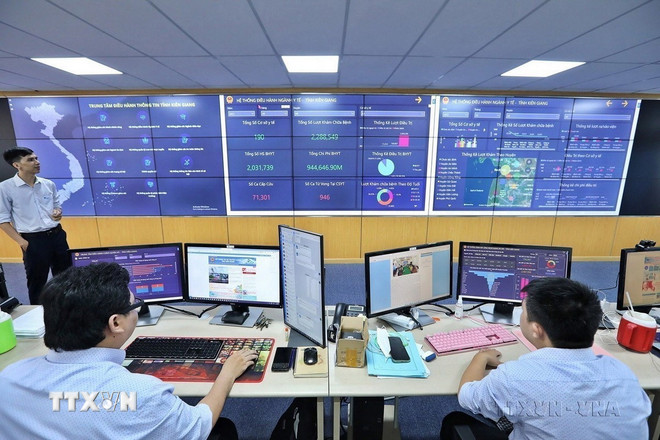
According to him, Vietnam can apply and promote the "Innovation Triangle" model, closely connecting the government, businesses and universities to enhance cooperation in research and application; establish more innovation centers in Hanoi, Ho Chi Minh City, Da Nang, and Can Tho to create an environment for technology startups to develop; reform tax policies to encourage R&D and support businesses to invest in innovation.
Vietnam can create funding mechanisms, venture capital and loan guarantees for technology startups; support free workspace for startups, organize many consulting programs from experts. The government prioritizes the use of technology products of Vietnamese enterprises, helping them develop domestically before expanding internationally.
In addition, Vietnam can orient investment in areas with breakthrough potential such as AI, semiconductors, digital healthcare, clean energy, blockchain; create policies to encourage technology enterprises to participate in research and development of innovative products; build a long-term technology development strategy, similar to what Australia does with renewable energy and AI.
Along with that, he said that Vietnam should improve the law on innovation and intellectual property, helping to protect technological inventions; simplify the process of registering new technologies and licensing technology startups;
Build new technology testing zones for businesses to test products before commercialization; cooperate internationally and attract high-tech investment, strengthen cooperation with leading technology countries such as the US, Japan, and the EU to receive technology transfer;
Building an attractive investment environment, attracting technology corporations to set up R&D centers in Vietnam; creating an intellectual property protection mechanism, helping businesses feel secure in investing in innovation.
Another very important factor is that Vietnam needs to have a mechanism to attract and "retain" scientific talents, develop high-quality human resources in the industrial science sector, especially digital technology, introduce programming, AI, big data into the general education program, help students get acquainted with technology early; apply a practical education model, link with businesses so that students can do real projects; encourage competitions in science, technology, robotics, AI, help students have a passion for discovery.
Lessons from Australia show that to develop high-quality human resources in digital technology, it is necessary to have a systematic training strategy from primary to university, closely linking with businesses, attracting international talent and building a lifelong learning model.
According to him, Vietnamese students and young intellectuals abroad are an important resource in promoting science and technology, innovation and digital transformation in Vietnam. They can contribute in many areas from scientific research, technology transfer, international cooperation to startups and policy advice.
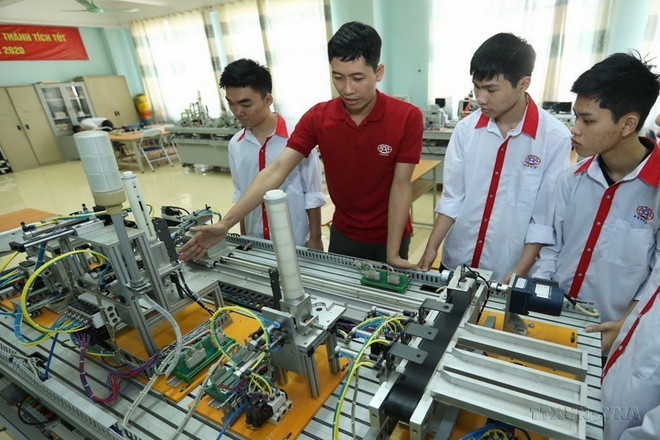
To attract and effectively exploit this resource, the Vietnamese Government needs to take measures to encourage young intellectuals to contribute to the country, for example, creating an attractive working environment, having a talent attraction program; building a global intellectual connection channel. Vietnam can completely turn the "brain flow" into a driving force for innovation.
As a member of VASEA - an organization that brings together Vietnamese intellectuals, technology experts, and scientists working in Australia with the desire to contribute to the development of Vietnam, expert Nguyen Tuan Nghia shared that he and his colleagues are establishing an AI and technology cooperation network between Australia and Vietnam, building a bridge between experts in AI, big data, blockchain, and cybersecurity in Australia with organizations, businesses, and research institutes in Vietnam.
Along with that is supporting AI startups in Vietnam in accessing advanced technology, international business models and global cooperation opportunities; promoting cooperation between leading Australian universities and technology universities in Vietnam;
Providing strategic consulting programs on AI and digital transformation, helping Vietnam build an effective and sustainable national AI ecosystem; supporting training of AI and digital technology human resources in Vietnam;
Cooperate with large units with experience in education development to build training programs and experimental equipment on AI and big data for primary, secondary and university levels;
Develop specialized training programs on AI, big data and semiconductor technology for Vietnamese provincial officials, engineers and students;
Organize mentoring programs, connecting Vietnamese students with leading AI experts in Australia to improve knowledge and practical skills;
Transferring ANS AI Box technology to Vietnam for application in strategic fields, contributing to improving operational efficiency and automation in key industries.
VASEA members are also making efforts to create bridges between the overseas Vietnamese intellectual community and Vietnam to promote the development of science and technology, innovation and digital transformation; at the same time, they are committed to accompanying the Vietnamese Government, supporting the training of technology human resources, AI research, investing in technology startups and consulting on digital technology development policies.
He believes that if Resolution 57 is implemented in the right direction, Vietnam can completely achieve the goal of becoming the leading technology center in the region by 2045./.
Source: https://www.vietnamplus.vn/nghi-quyet-57-chien-luoc-toan-dien-dua-viet-nam-tien-xa-hon-trong-ky-nguyen-so-post1024613.vnp



![[Photo] General Secretary To Lam begins official visit to Russia and attends the 80th Anniversary of Victory over Fascism](https://vphoto.vietnam.vn/thumb/1200x675/vietnam/resource/IMAGE/2025/5/8/5d2566d7f67d4a1e9b88bc677831ec9d)
![[Photo] National Assembly Chairman Tran Thanh Man chairs the meeting of the Subcommittee on Documents of the First National Assembly Party Congress](https://vphoto.vietnam.vn/thumb/1200x675/vietnam/resource/IMAGE/2025/5/8/72b19a73d94a4affab411fd8c87f4f8d)
![[Photo] General Secretary concludes visit to Azerbaijan, departs for visit to Russian Federation](https://vphoto.vietnam.vn/thumb/1200x675/vietnam/resource/IMAGE/2025/5/8/7a135ad280314b66917ad278ce0e26fa)
![[Photo] Prime Minister Pham Minh Chinh meets with the Policy Advisory Council on Private Economic Development](https://vphoto.vietnam.vn/thumb/1200x675/vietnam/resource/IMAGE/2025/5/8/387da60b85cc489ab2aed8442fc3b14a)
![[Photo] President Luong Cuong presents the decision to appoint Deputy Head of the Office of the President](https://vphoto.vietnam.vn/thumb/1200x675/vietnam/resource/IMAGE/2025/5/8/501f8ee192f3476ab9f7579c57b423ad)
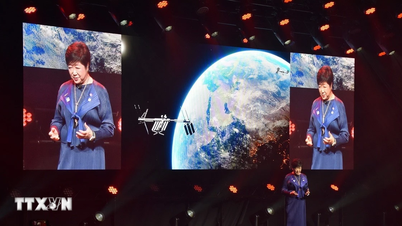
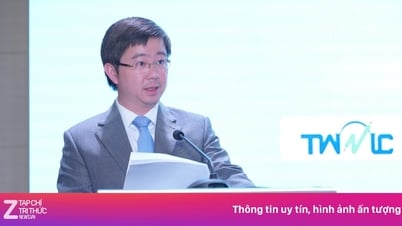
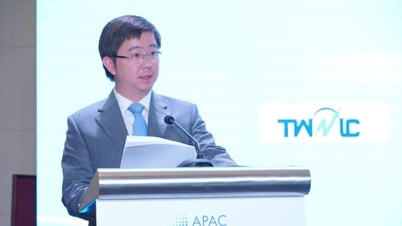


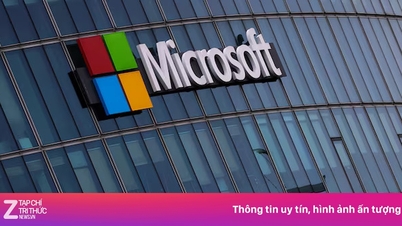





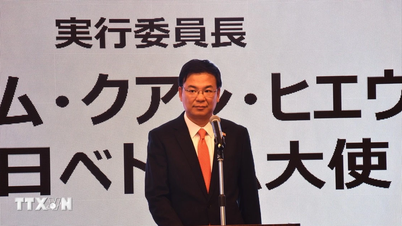

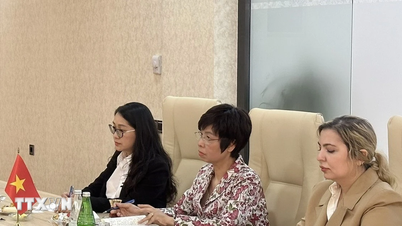

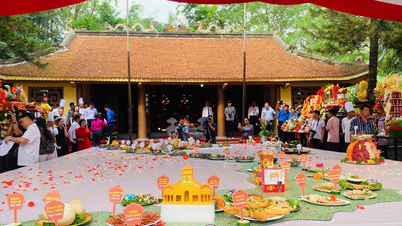
































![[Photo] Prime Minister Pham Minh Chinh talks on the phone with Singaporean Prime Minister Lawrence Wong](https://vphoto.vietnam.vn/thumb/402x226/vietnam/resource/IMAGE/2025/5/8/e2eab082d9bc4fc4a360b28fa0ab94de)












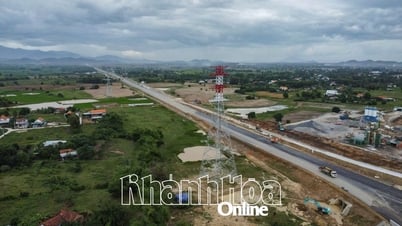
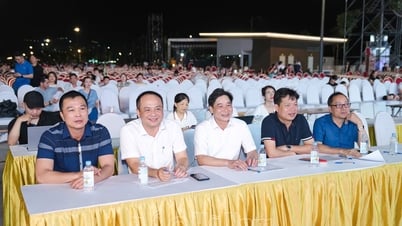

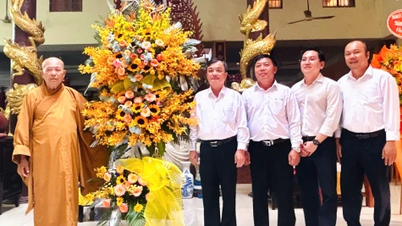





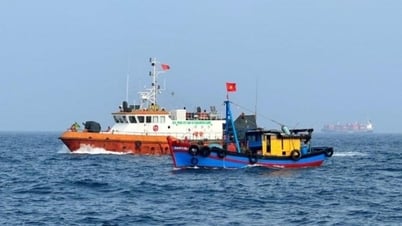











Comment (0)